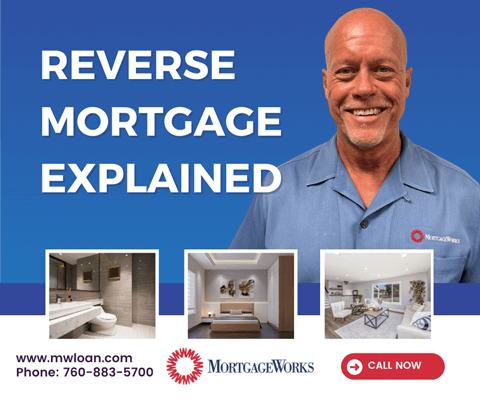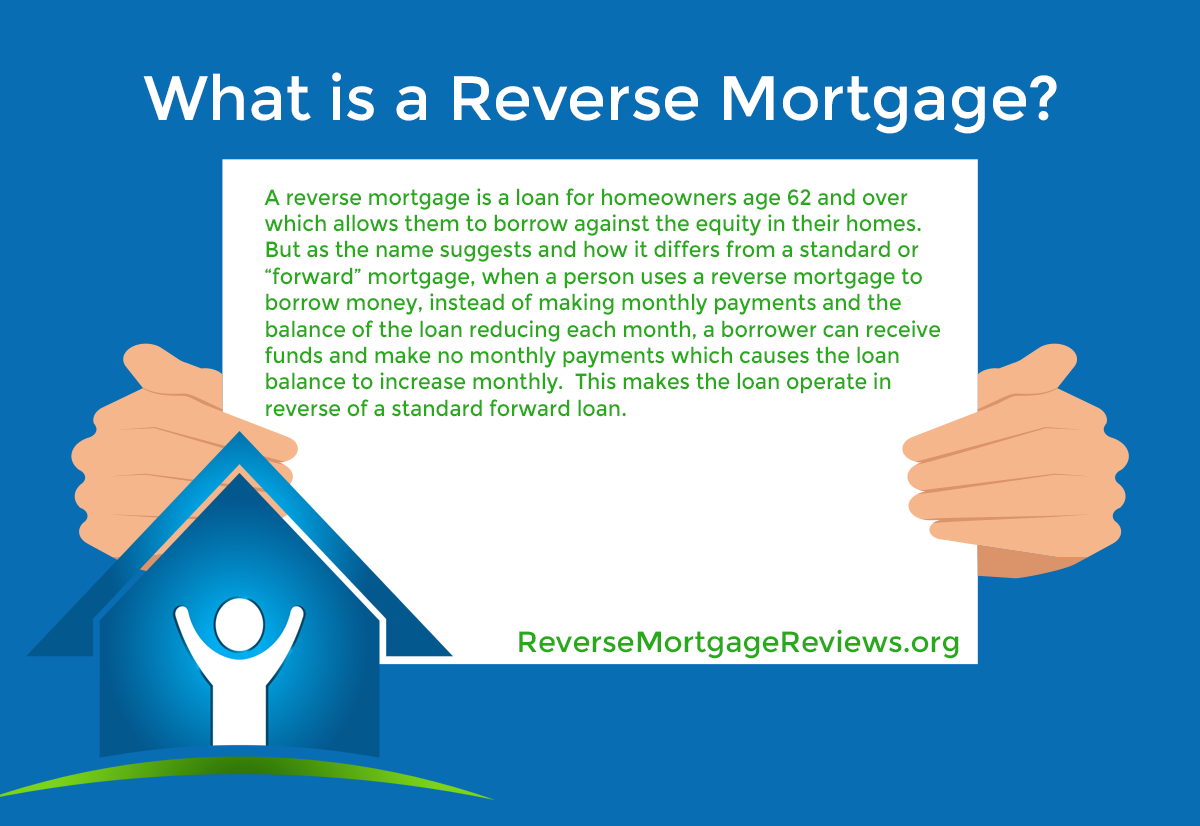Step-By-Step: Exactly How to Purchase a Reverse Mortgage With Confidence
Navigating the intricacies of acquiring a reverse home loan can be challenging, yet an organized method can encourage you to make educated choices. It begins with analyzing your qualification and understanding the subtleties of different finance choices offered in the market (purchase reverse mortgage). As we explore each step, it comes to be noticeable that confidence in this economic choice hinges on detailed preparation and educated choices.
Understanding Reverse Home Loans

The key device of a reverse home mortgage entails loaning versus the home's worth, with the car loan amount boosting gradually as passion accrues. Unlike traditional home loans, debtors are not called for to make monthly repayments; instead, the finance is repaid when the homeowner sells the home, vacates, or dies.
There are two main types of reverse home mortgages: Home Equity Conversion Home Mortgages (HECM), which are federally insured, and proprietary reverse mortgages offered by personal loan providers. HECMs commonly supply higher security because of their regulatory oversight.
While reverse home mortgages can supply monetary relief, they additionally include prices, consisting of origination charges and insurance costs. It is crucial for possible customers to fully recognize the terms and ramifications prior to continuing with this financial choice.
Assessing Your Eligibility
Eligibility for a reverse home mortgage is mainly determined by a number of key aspects that potential consumers have to think about. Primarily, candidates have to go to the very least 62 years old, as this age requirement is set to guarantee that debtors are coming close to or in retired life. Furthermore, the home must serve as the borrower's primary home, which implies it can not be a getaway or rental residential or commercial property.
One more important element is the equity setting in the home. Lenders normally need that the debtor has an adequate amount of equity, which can affect the amount readily available for the reverse home mortgage. Usually, the extra equity you have, the bigger the loan quantity you might certify for.
Moreover, possible debtors need to demonstrate their ability to meet economic commitments, consisting of real estate tax, home owners insurance policy, and upkeep expenses - purchase reverse mortgage. This analysis often includes an economic assessment performed by the lending institution, which examines revenue, credit score background, and existing financial obligations
Finally, the property itself have to fulfill certain requirements, consisting of being single-family homes, FHA-approved condos, or specific manufactured homes. Understanding these variables is crucial for figuring out eligibility and planning for the reverse home mortgage procedure.

Looking Into Lenders
After establishing your eligibility for a reverse home mortgage, the next action involves investigating loan providers that provide these economic items. It is essential to recognize trustworthy lending institutions with experience in reverse home loans, as this will ensure you obtain reputable assistance throughout the process.
Begin by examining loan provider credentials and certifications. Seek loan providers who are members of the National Reverse Home Loan Lenders Association (NRMLA) and are accepted by the Federal Real Estate Management (FHA) These affiliations can suggest a commitment to moral methods and compliance with industry requirements.
Checking out client testimonials and endorsements can provide understanding into the lender's credibility and customer support top quality. Internet sites like the Bbb (BBB) you could try these out can likewise supply ratings and problem backgrounds that might help educate your choice.
Additionally, seek advice from financial experts or housing counselors that focus on reverse mortgages. Their competence can assist you navigate the options readily available and advise credible loan providers based on your unique economic circumstance.

Comparing Car Loan Alternatives
Contrasting car loan alternatives is an essential action in securing a reverse home loan that aligns with your monetary objectives. When examining different reverse mortgage items, it is important to consider the certain features, costs, and terms related to each option. Beginning by assessing the sort of reverse home loan that best suits your demands, such as Home Equity Conversion Home Loans (HECM) or proprietary lendings, which may have different qualification standards and benefits.
Next, pay attention to the rates of interest and charges linked with each car loan. Fixed-rate loans supply security, while adjustable-rate choices might provide reduced initial rates however can rise and fall over time. Furthermore, take into consideration the upfront expenses, consisting of mortgage insurance coverage costs, source costs, and closing costs, as these can considerably affect the general cost of the financing.
Furthermore, analyze the repayment terms and exactly how they line up with your long-lasting economic technique. When the lending should be repaid is vital, understanding the implications of just how and. By extensively contrasting these aspects, you can make a notified decision, ensuring your selection supports your economic health and wellbeing and gives the safety you look for in your retirement years.
Finalizing the Acquisition
As soon as you have thoroughly over at this website evaluated your alternatives and chosen the most suitable reverse home mortgage item, the next step is to complete the acquisition. This procedure includes numerous critical actions, making certain that all needed paperwork is accurately finished and submitted.
First, you will certainly need to collect all needed paperwork, consisting of proof of revenue, property tax obligation statements, and house owners insurance coverage documentation. Your loan provider will give a listing of details papers required to assist in the approval procedure. It's crucial to supply complete and precise information to prevent delays.
Following, you will undergo a thorough underwriting process. Throughout this phase, the loan provider will examine your financial circumstance and the worth of your home. This may consist of a home assessment to establish the home's market price.
Once underwriting is full, you will get a Closing Disclosure, which outlines the final regards to the lending, including costs and interest prices. Testimonial this file carefully to make sure that it aligns with your expectations.
Final Thought
In conclusion, navigating the process of acquiring a reverse mortgage needs a detailed understanding of eligibility standards, diligent research on loan providers, and mindful contrast of loan options. By systematically complying with these steps, individuals can make educated choices, making certain that the chosen home loan lines up with financial objectives and demands. Ultimately, a knowledgeable technique cultivates confidence in protecting a reverse home loan, offering monetary stability and support for the future.
Look for loan providers who are members of the National Reverse Mortgage Lenders Organization (NRMLA) and are accepted by the Federal Real Estate Management (FHA)Contrasting lending options is a crucial step in protecting a reverse you can try this out home mortgage that lines up with your economic objectives (purchase reverse mortgage). Beginning by reviewing the kind of reverse home loan that ideal suits your needs, such as Home Equity Conversion Home Loans (HECM) or exclusive finances, which might have different qualification requirements and benefits
In conclusion, browsing the process of purchasing a reverse home loan requires a comprehensive understanding of qualification requirements, diligent study on loan providers, and careful contrast of lending alternatives. Ultimately, a well-informed method fosters confidence in safeguarding a reverse home mortgage, supplying financial stability and assistance for the future.